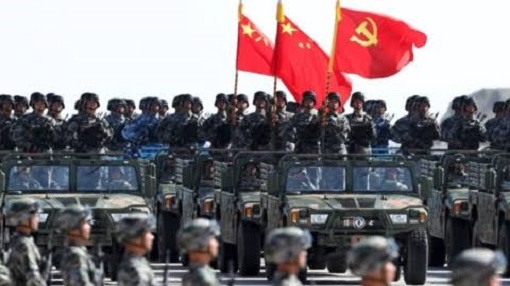Beijing/Washington: – Following the US order to close the Chinese embassy in Houston, there are indications of a similar retaliation by China. The Chinese media reported that the US consulate in Chengdu city might be closed. At the same time, the US agencies have accused that a Chinese researcher, working in the United States, had given false information and she has been sheltered in the Chinese embassy in San Francisco. These successive developments are indicating that the political conflict between the United States and China, which started against the background of the Coronavirus pandemic, is culminating into a political war.
 The US department of state has informed that China has been ordered to close its embassy in Houston within three days, citing threats to the US intellectual property and personal information. Before the official announcement by the United States, the Chinese foreign ministry had released a statement denouncing the unilateral decision taken by the US department of state to order the closure of the Chinese embassy in Houston. The statement claimed that the concerned order was an attempt for political incitement and warned of a similar retaliation. Thereafter, the Chinese media reported regarding the moves for the closure of the US embassy in Chengdu. Although the Chinese agencies have not officially confirmed the report, a claim has been made quoting sources that the embassy may be closed.
The US department of state has informed that China has been ordered to close its embassy in Houston within three days, citing threats to the US intellectual property and personal information. Before the official announcement by the United States, the Chinese foreign ministry had released a statement denouncing the unilateral decision taken by the US department of state to order the closure of the Chinese embassy in Houston. The statement claimed that the concerned order was an attempt for political incitement and warned of a similar retaliation. Thereafter, the Chinese media reported regarding the moves for the closure of the US embassy in Chengdu. Although the Chinese agencies have not officially confirmed the report, a claim has been made quoting sources that the embassy may be closed.
The Chengdu city is located in the Sichuan province in southwest China, and the United States had opened its embassy there in 1985. This embassy, keeping an eye on Tibet and the Xinjiang provinces, is considered to be strategically very important for the United States. Eight years ago, the embassy had been in a discussion following the unexpected visit of a Chinese police officer, Wang Lijun, to the embassy. Although the reports regarding the closure of the embassy are making rounds in the Chinese media, Consul General Jim Mullinax, Chief of the embassy in Chengdu, has refused to comment on the issue.
 The Chinese embassy in the United States has fired a salvo of criticism at the United States against this very background. China has retorted that if the US-China relations are to be compared to a car, it can be said that the United States is driving the car in the wrong direction. The worst part is that the United States has put its foot on the accelerator, whereas the need is to brake and change the direction of the car.
The Chinese embassy in the United States has fired a salvo of criticism at the United States against this very background. China has retorted that if the US-China relations are to be compared to a car, it can be said that the United States is driving the car in the wrong direction. The worst part is that the United States has put its foot on the accelerator, whereas the need is to brake and change the direction of the car.
The United States has given indications of the new action only against the background of the Chinese moves. Chinese researcher Juan Tang, working in the California University, has been accused of cheating by submitting false information. The accusation has been levelled in the charge sheet filed by the US investigation agency, the Federal Bureau of Investigation (FBI). It has been exposed that Juan Tang is a member of the Communist Party of China and has served in the People’s Liberation Army and hid this information while applying for the US visa.
Last month, the FBI had interrogated Tang in this matter. But it is believed that Tang has taken refuge in the Chinese embassy in San Francisco to evade arrest. Tang is still in the Chinese embassy, and the FBI has accused that the embassy is hiding facts in the matter. Given these accusations, one more Chinese embassy seems to have become the centre of a controversy. At the same time, this also substantiates that charges of espionage levelled by the United States against China.














